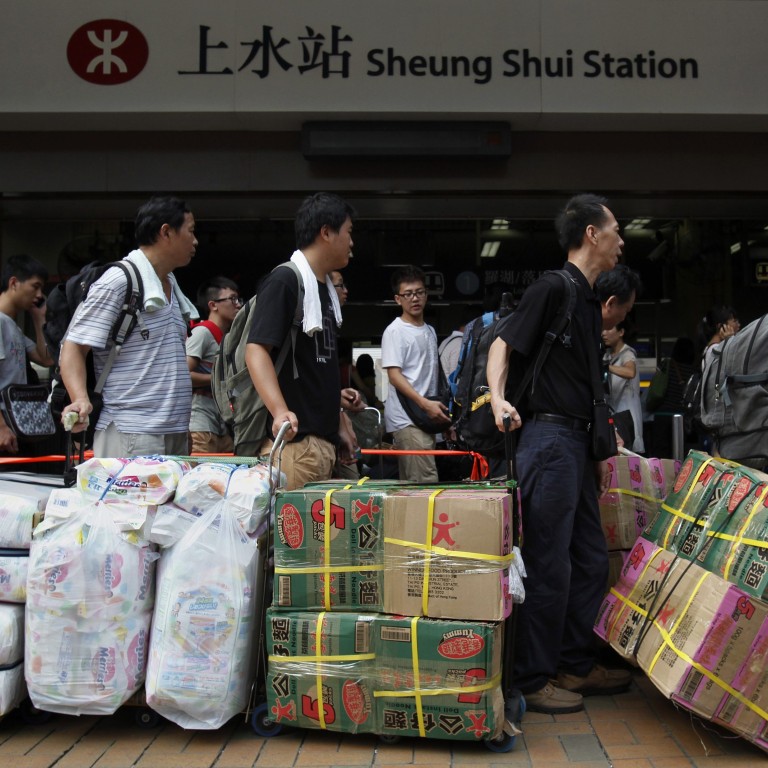
Officials must dare to stand up for Hong Kong's interests
Stephen Vines says a show of bravery could reinforce 'two systems'
If you are looking for a telling snapshot of how the "one country, two systems" concept is working out, look no further than Tuen Mun or maybe Tsim Sha Tsui - or indeed any other place jammed with visitors from the mainland.
At one extreme, their presence provokes ugly demonstrations but, more generally, it incites a bitter response. What lies behind this is not merely their presence but the sense of hopelessness that is enveloping Hong Kong, which appears to have a government with no control over, or even any desire to shape, this place's destiny.
When it comes to the influx of visitors from across the border, officials say they are waiting for instructions from Beijing, when it comes to constitutional reform, they say that these decisions are made in Beijing, and, it now appears that orders from above are even dictating who will be appointed to various public offices.
Meanwhile, there is no getting away from the folly and ugliness of confrontations between ordinary people from the mainland and, mainly, working-class people from Hong Kong. This is plain wrong as both parties are victims of a system that puts them in the back seat.
The folly is compounded by the idiots waving colonial-era flags who provide Hong Kong's born-again patriots with an excuse to justify their desire for a new colonial status.
It really was not supposed to work like this although fascinating contortions are being performed to suggest that both the Basic Law and the Sino-British Joint Declaration are blueprints for Hong Kong's subservience to the mainland in all matters.
Yet, the fundamental principle of the "one country, two systems" concept drew a line between what needed to be decided in Beijing and the "high degree of autonomy" offered to the local government. As Deng Xiaoping said in 1984, "we should have faith in the Chinese of Hong Kong, who are quite capable of administrating their own affairs".
What happened to that faith? The bald facts are that is has largely been eroded by the very people who were handpicked in Beijing to lead the new special administrative region.
Instead of working assiduously to build Hong Kong's own institutions and preserve its distinctive identity, they have opted for a reflex desire to refer all big decisions up north and have chosen to tell the leaders in Beijing only what they want to hear. A true leader is also the bearer of unpleasant truths.
Meanwhile, back on the streets, places rarely visited by the grand people who run Hong Kong, ordinary people can't get on buses taking them to work, find that their local shopping centres no longer serve their needs and fear that, because of mainland money inflating property prices, the dream of ever owning a home will never be realised.
"One country, two systems" was always a novel and difficult concept. Yet it contained the genius of a plan to serve the interests of both systems.
Now it looks like a sham and the wilful abandonment of the plan is fuelling discontent that will hardly be ameliorated by the chief executive's masterly suggestion that Hong Kong people should be more like sheep.
There are many practical ways in which the tension between Hongkongers and mainlanders can be eased, such as improving public transport in areas principally affected by the influx and introducing a real programme for widespread home ownership.
However, what is really and urgently required is a government that shows signs of standing up for the interests of the people it governs.
If this means being just a little brave and sometimes asserting itself in the face of the central authorities - is this really too much to ask?

